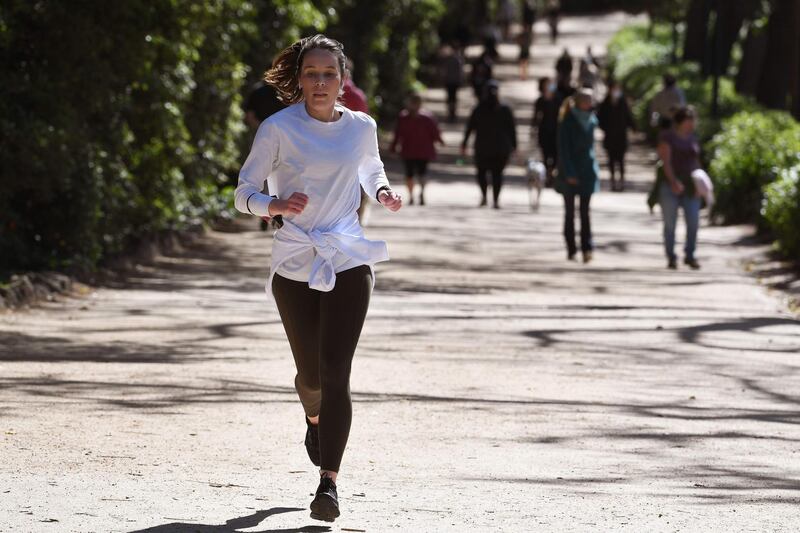An overnight curfew in Australia’s second-largest city will be lifted this week, officials said on Sunday, as the global coronavirus toll inched towards one million dead.
Despite the number of infections worldwide passing 32 million – with the US state of New York reporting a new spike – more than 10,000 anti-lockdown protesters demonstrated in central London against the reimposition of restrictions there.
In more positive news, residents of the Chinese city of Wuhan, where the virus emerged last year, reported a hesitant return to normality, while the French Open tennis tournament got under way at Roland Garros in Paris.
In Australia, Victoria Premier Daniel Andrews said Melbourne residents would be free from Monday to leave their homes for work, exercise, shop for essentials or provide care after active cases in the state fell below 400 for the first time since June 30.
The relaxation of the lockdown, imposed on August 2, comes after 16 new infections and two deaths were reported on Sunday.
People will still be confined to within five kilometres of their homes, and fines for breaching other restrictions will be increased to almost AUD $5,000 (Dh12,908).
Andrews said several other restrictions, such as those on religious services and childcare centres, will also be lifted.
It was a different story in the UK, now battling to contain a mounting second wave, as thousands marched in London on Saturday against coronavirus restrictions.
At least 10 people were arrested as police moved in with batons to disperse more than 10,000 protesters gathered in the capital’s Trafalgar Square.
This week, Prime Minister Boris Johnson’s government imposed a ban on gatherings of more than six people and ordered pubs and restaurants to close at 10pm to slow the spread of the virus, which has killed about 42,000 people in the country so far – making it the worst-affected nation in Europe.
In New York state – once the centre of the US outbreak – new infections rose for the first time since June to above 1,000 a day, local officials said on Saturday.
In India, meanwhile, infections closed in on six million on Sunday as Prime Minister Narendra Modi called on people to keep wearing face masks in public.
“They are potent tools to save the life of every citizen,” he said.
Health ministry figures showed that the total number of cases had risen to 5,996,823.
India is expected to overtake the US, which has reported more than seven million cases, as the worst-hit country in the next few weeks.
France will face a months-long coronavirus epidemic that will overwhelm its health system if something does not change, one of the country's top medical figures warned on Sunday.
"The second wave is arriving faster than we thought," Patrick Bouet, head of the National Council of the Order of Doctors, told the weekly Journal du Dimanche.
Fresh restrictions to slow the spread of the disease in the country's worst-hit areas, including the Mediterranean city of Marseille and the Paris region, have run into local resistance.
For residents of Wuhan, where the coronavirus first appeared late last year, life is already back to normal.
There have been 50,340 confirmed cases and 3,869 deaths in the city, according to the official figures – the majority of mainland China’s toll – but no new infections since May.
In Germany, the number of confirmed coronavirus cases increased by 1,411 on Saturday, taking the total to 284,140, data from the Robert Koch Institute for infectious diseases showed.
Five fatalities were reported, taking the death toll to 9,457.







